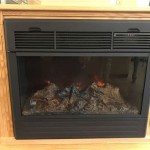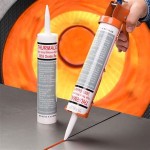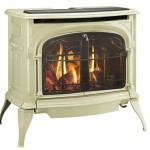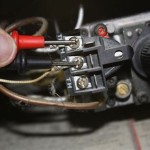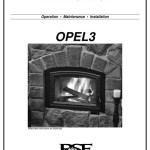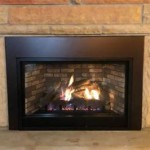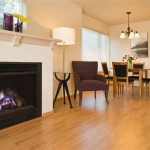Stacked Stone Around Fireplace: A Timeless and Versatile Design Feature
Stacked stone, a timeless and versatile design element, has long been a popular choice for enhancing the aesthetic appeal and warmth of fireplaces. The natural beauty and textural richness of stacked stone create a captivating focal point in any living space, transforming a simple fireplace into a stunning architectural masterpiece.
From the rustic charm of fieldstone to the sleek elegance of slate, stacked stone offers a wide array of options to suit various design preferences. Whether you are seeking a traditional, contemporary, or transitional style, stacked stone provides a durable and visually appealing solution that complements any architectural theme.
Benefits of Stacked Stone Around Fireplaces
Stacked stone around fireplaces offers a multitude of benefits that make it a popular choice for homeowners and designers alike.
1. Enhanced Aesthetics and Visual Appeal
Stacked stone naturally adds a touch of elegance and sophistication to any fireplace, enhancing its visual appeal and creating a focal point that draws the eye. The varied textures and colors of natural stone offer endless possibilities for creating unique and captivating designs.
2. Durability and Longevity
Stone is a naturally durable material that can withstand the test of time. Unlike other materials that may be susceptible to wear and tear, stone remains resistant to scratches, stains, and fading. This durability ensures that your fireplace surround will retain its beauty for generations to come.
3. Thermal Efficiency
Stone is an excellent thermal conductor, meaning it can absorb and retain heat effectively. This property can enhance the efficiency of your fireplace by maximizing heat distribution and creating a comfortable and cozy ambiance throughout the room.
4. Versatile Design Options
Stacked stone offers a wide range of design possibilities, allowing you to personalize your fireplace surround to complement your individual style and preferences. From classic stacked patterns to intricate mosaics, the options are virtually limitless. You can also choose from a variety of colors, textures, and finishes to create a unique and distinctive look.
Types of Stacked Stone for Fireplace Surrounds
The choice of stacked stone for your fireplace surround should align with your design preferences, budget, and desired aesthetic. Here are some popular options:
1. Fieldstone
Fieldstone, characterized by its irregular shapes and earthy tones, evokes a sense of rustic charm and traditional elegance. This type of stone is often used to create a cozy and welcoming atmosphere. Fieldstone fireplaces are particularly well-suited for homes with a farmhouse or country style.
2. Slate
Slate, known for its smooth, flat surfaces and rich, dark hues, offers a more contemporary and sophisticated aesthetic. Its sleek lines and minimalist appeal make it a popular choice for modern and transitional homes. Slate is a durable and water-resistant material, making it an excellent choice for fireplaces in damp environments.
3. Marble
Marble, a luxurious and prestigious material, adds a touch of opulence and timeless elegance to any fireplace. Its intricate veining patterns and classic white color scheme create a sophisticated and refined ambience. Marble is a versatile material that can be used to create a range of styles, from traditional to contemporary.
4. Limestone
Limestone, with its warm, muted tones and textured surfaces, evokes a sense of natural beauty and tranquility. This type of stone is often used to create a classic and timeless aesthetic. Limestone fireplaces complement a wide range of design styles, from traditional to transitional.
5. Granite
Granite, known for its durability and unique patterns, offers a bold and striking aesthetic. This type of stone is often used to create a contemporary and sophisticated fireplace surround. Granite is a highly resistant material that can withstand the rigors of everyday use, making it an ideal choice for busy households.
Installation Considerations
Installing stacked stone around a fireplace is a specialized task that requires expertise and attention to detail. It is highly recommended to consult with a qualified professional for installation. They will ensure proper preparation, mortar selection, and installation techniques to achieve a durable and visually appealing result.
When considering the installation of stacked stone around your fireplace, it is important to factor in the following considerations:
- Fireplace Type: The type of fireplace, whether it is a wood-burning, gas, or electric model, will influence the installation process and the materials used.
- Existing Surround: If an existing surround is present, it may need to be removed or modified to accommodate the stacked stone installation.
- Fireplace Size and Shape: The dimensions and shape of the fireplace will dictate the amount of stone required and the pattern of the installation.
- Ventilation and Safety: The installation should be carried out in accordance with fire safety regulations and codes to ensure proper ventilation and prevent hazards.
Stacked stone around a fireplace adds a touch of elegance, durability, and versatility to any living space. By carefully considering your design preferences, the type of stone, and the installation process, you can create a stunning focal point that will enhance the beauty and warmth of your home for years to come.

12 Stacked Stone Fireplace Ideas For Optimal Coziness
.jpg?strip=all)
Tips And Tools For Professional Stacked Stone Fireplaces

12 Stacked Stone Fireplace Ideas For Optimal Coziness

Natural Stacked Stone Veneer Fireplace Ideas

Tips And Tools For Professional Stacked Stone Fireplaces

5 Stacked Stone Surrounds Travertine Quartzite Or Marble

Foyer Intérieur Design D Aménagement Avec Parement Pierre Naturelle Inspirationmaison Idmai Home Fireplace Brick Makeover

Pin On Woodworking

Is A Cozy Stacked Stone Fireplace Your Next Dream Project

Stone Fireplace Design And Remodel
Related Posts

